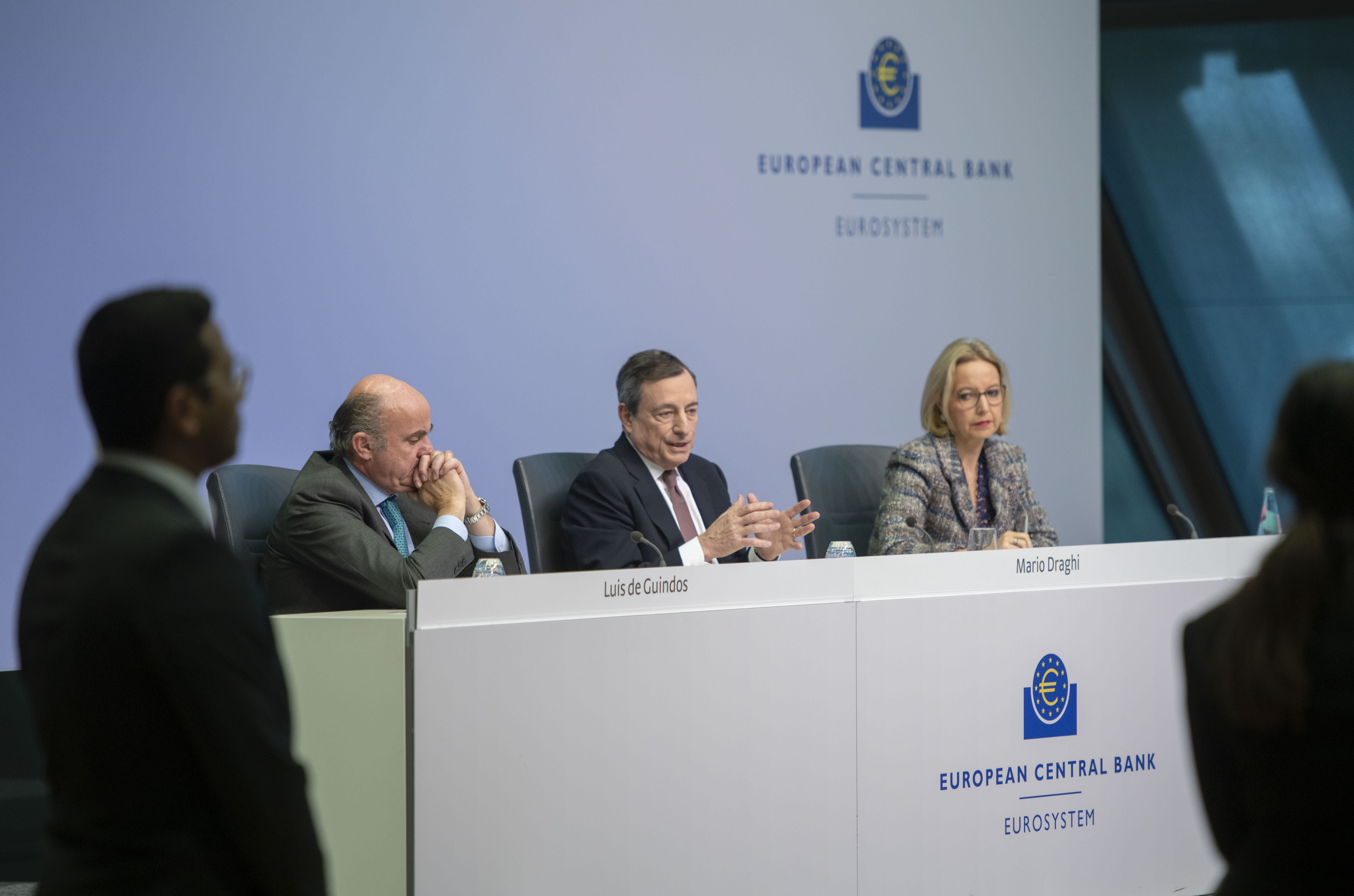
Two top officials have tried to temper market expectations of an immediate quantitative easing (QE) package being launched by the European Central Bank (ECB).
Earlier in the summer, ECB President Mario Draghi said he was looking at further options to prop up the 19-member euro zone economy, outlining that one of the possibilities included a new program of asset purchases to stimulate lending and boost inflation.
Investors cheered his dovish comments with ECB members like François Villeroy de Galhau highlighting that a major bond-buying program, also known as QE, could come in the proceeding months if needed.
But just as investors gear up for the ECB's next meeting on September 12, two notably hawkish members of the euro zone's central bank have decided to inject some reality back into the debate.
"In my opinion, based on the current data, it is much too early for a huge package," executive board member Sabine Lautenschlaeger said in an interview with Market News this week which was published on the ECB's website Friday.
"I am still convinced that the Asset Purchase Programme (APP) is the ultima ratio, and it should only be used if you have a risk of deflation; and the risk of deflation is nowhere to be seen now."
Fellow ECB member and Dutch central bank chief Klaas Knot added his own words of caution. "If deflation risks come back on the agenda then I think the asset-purchase programme is the appropriate instrument to be activated, but there is no need for it in my reading of the inflation outlook right now," he told Bloomberg Thursday.
But there's only been a muted market response since these comments with European stocks posting gains on both Thursday and Friday. Analysts at Rabobank put this down to traders already being aware that there wasn't unanimity among the ECB's board members on QE.
They also highlighted in a research note that the reason the hawks "are stating their objections so vociferously is that they know that it is very likely that the APP will imminently be re-started."
If implemented, it would be the second time in its history that the central bank has announced a massive program to directly inject money into the euro zone economy.
Last week, Erik Nielsen, group chief economist at UniCredit, predicted QE would be launched in September and could between 300 billion and 400 billion euros ($333.07 and $444.10 billion) over a nine-month period.
The euro area is still struggling to deal with its low inflation levels and to grow at a significant rate. According to the central bank's latest forecasts, out in June, headline inflation is set to reach 1.3% in 2019 — the ECB's target is "below but close to 2%." In terms of growth, the central bank is expecting growth to reach 1.2% this year — having grown at a rate of 1.8% in 2018.
Silvia Dall'Angelo, senior economist at Hermes Investment Management, told CNBC via email last week that he wouldn't rule out an open-ended approach by the ECB.
"An ECB official recently made the case for a more forceful move, a bigger rather than smaller programme is likely, say 45 billion euros per month for a year," he said.
https://www.cnbc.com/2019/08/30/european-central-bnak-hawks-try-to-downplay-the-chances-of-qe.html
2019-08-30 09:15:54Z
CAIiEO9CJ7Hx3LmlK1p0OWcr4T0qGQgEKhAIACoHCAow2Nb3CjDivdcCMJ_d7gU
Bagikan Berita Ini














0 Response to "ECB hawks are trying to downplay the chances of a huge stimulus package in September - CNBC"
Post a Comment